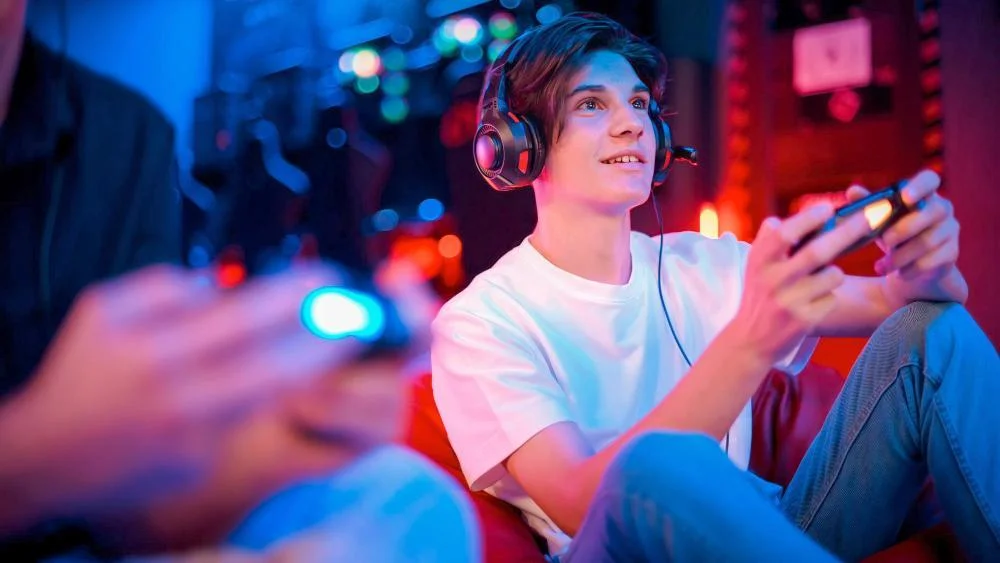Admin
I am the admin of BR Softech PVT LTD - an Award-winning Mobile game development company. My thesis is to work with hard-bit and get the best Exposure. I have driven by the spirit of entrepreneurship and dream to build a billion-dollar-company.

Video creators leverage the psychology of rewards to attract people to play the games. Players rise through the different levels of the game and receive rewards. The player develops anticipation to receive recompense and thus keeps on playing.
After every reward, the brain’s dopamine level surges higher. This makes the player feel they have achieved victory and they receive pleasure. This strategy can be used to promote performance in students. The psychological aspects of motivation help boost engagement in learners in many ways.
The reward system is pegged on the psychology of expectancy. To be expectant means the player’s mind is set towards an anticipated outcome. Reward expectation has a powerful effect on the learning process. B.F. Skinner developed the operant conditioning principle in the 1930s. It is founded on 5 key principles.
The main reason why students work harder in education is to get rewarded. Their expected reward is higher grades. Essay writing is one of the activities that impact the grades awarded. Due to a lack of writing experience, a student could fail to achieve higher marks. Luckily, a student can pay for essay and get help from professionals. They engage in research and write quality essays that earn higher scores. You can order from them any other academic paper and get it done in no time. If you ever find yourself struggling with a challenging assignment, you can seek assistance by simply saying, ‘write an assignment for me‘. This way, you can ensure that you receive the necessary support to excel in your academic pursuits.
The reward principle is widely applied in gamification in education. It helps promote student performance. The positive and negative should not be based on good and bad notions. Instead, it means that you must keep adding something good in life. At the same time, you simultaneously remove something bad or negative in you.
The rewards received in games may not be monitory-based. However, they stir learners to discover more and engage at a higher level. Statistics show students who play education-based games perform better.
Science Direct used a gamification strategy to study student engagement in education. They found that the students in the strategy recorded higher intrinsic motivation. Those who engaged in in-game tasks recorded higher extrinsic motivation.
When interviewed, the participants said gaming platforms were more motivating. They said they were preferred tools for learning. The study concluded that gamification in education can boost motivation. Psychologists report that gamification makes learners feel better.
They report educational games play an important role in collaborative projects. The Department of Education reports that games boost the production of dopamine. This report agrees with the psychology of gamification theory. It states learners tend to love learning when gaming elements are introduced. Video games in education provide a variety of benefits to learners.
NCBI describes reward as an occurrence that generates a happy experience. Behavior scientists define rewards as an event that promotes good behavior. Based on these definitions, rewards can reinforce a process. It can help people influence behavior. It produces an outcome that encourages learning.
Some students may not love education or sitting in a classroom to learn. Rewards can serve as a stimulus that stirs their mind to learn. In the American Psychological Association journal, incentives work. Based on the journal, an incentive stirs someone to improve performance. It could include food, gifts, real money games, or digital gadgets. In this case, rewards from gamified lessons motivate learners to perform better.
Based on the B.F. Skinner’s findings, the human brain responds to rewards easily. The scientific explanation behind this is the role of dopamine in the brain. According to neuroscientists, dopamine causes an arousal of pleasure. It can be triggered by other factors such as music and food.
Games in education use the same principle of reward system. For the system to work with students, educators need to develop a reward strategy. Apart from the rewards received in games, there needs to be another strategy. It should help the student get higher motivation to learn. The strategy may include the following.
The social learning theory suggests that people do not learn by conditioning. Instead, they learn through observation. Albert Bandura explains that children learn behavior through imitation. ResearchGate states that gamification encourages social learning. It creates an environment where learners directly interact with each other.
Social video games with an education theme can encourage students to learn. They learn concepts from each other which helps enhance retention. Their memory improves including performance. The ResearchGate study suggests that gamification and social learning should be embedded in a unique strategy. It should create a predictive learning strategy geared towards success.
Educators should be able to predict the outcomes of the strategy. They need to use metrics that measure success versus bottlenecks. Additionally, there needs to be room for improvement. Psychologists advise that social learning is one of the most effective ways of learning. When combined with gamification, the results can be outstanding.
Research shows gamification can help motivate students and improve performance. Games trigger the release of dopamine which boosts excitement in them. Science Direct shows gamification can increase learning performance by 34.75%. Psychologists report that games create anticipation and hope. The expectation to earn rewards encourages them to work harder. Educators need to create a reward strategy to help learners focus more on learning.